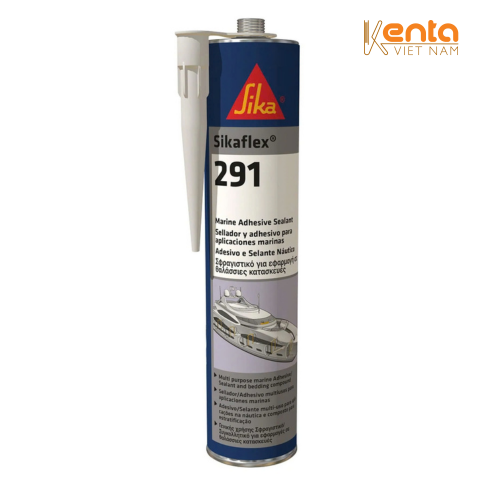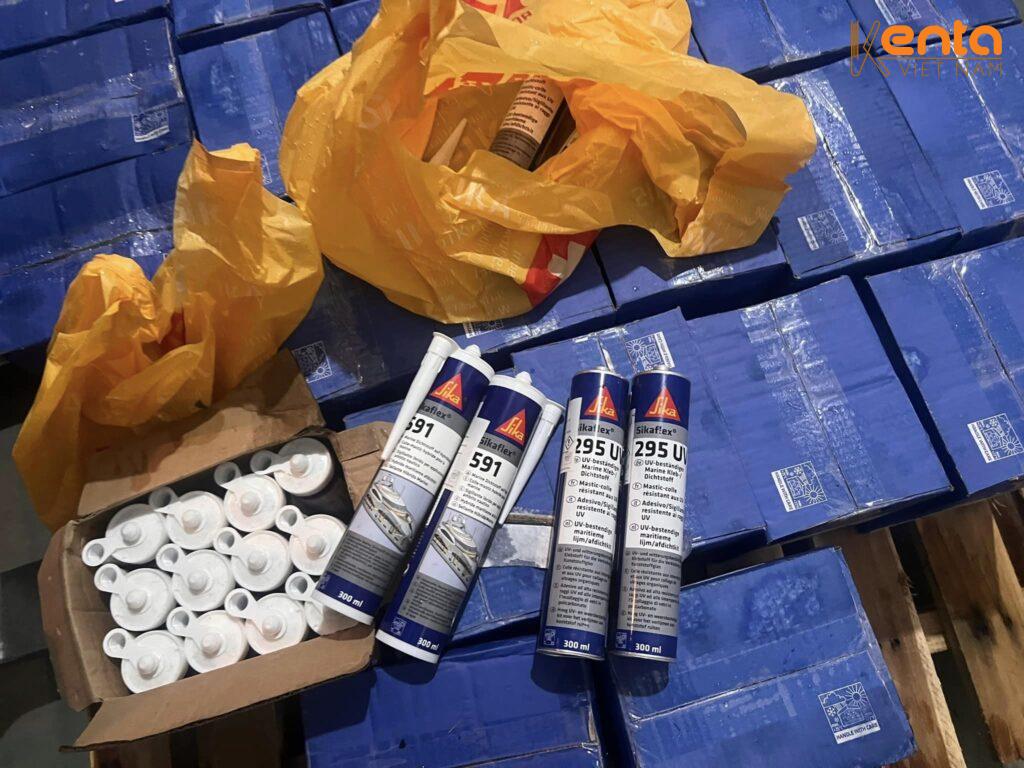Knowledge, Technology
TOP 5 ADHESIVES FOR THE MARINE INDUSTRY
For those working in the marine industry, adhesives are no longer unfamiliar products. Let's learn about adhesives for the marine industry with Kenta VietNam in the following article!
Adhesives for the marine industry
What are adhesives for the marine industry?
Adhesives for the marine industry are specialized glues designed to create strong bonds between different materials in a marine environment. These adhesives typically have outstanding characteristics such as:
Good water resistance: Capable of waterproofing and unaffected by seawater.
Chemical resistance: Capable of resisting common chemicals in the marine environment, such as grease and solvents.
Resistance to harsh weather conditions: Can operate effectively in changing weather conditions, from hot to cold.
High durability: Creates strong and long-lasting bonds, helping to protect the structures of ships.
Some common types of adhesives used in the marine industry include epoxy adhesive, polyurethane adhesive, and silicone adhesive. These types are often used for bonding, sealing, and repairing parts of ships, such as hulls, wooden structures, and metal components.
What are adhesives for the marine industry?
Why use adhesives?
The use of adhesives in the marine industry is very important for the following reasons:
Ensuring safety: Adhesives help create strong bonds between ship components, ensuring they do not separate during movement or when encountering large waves.
Waterproofing: Specialized adhesives are waterproof, helping to protect internal structures from seawater and moisture, thereby extending the lifespan of the ship.
Chemical resistance: In the marine environment, ships often come into contact with chemicals such as oil and solvents. High-quality adhesives can resist these effects, protecting materials and minimizing damage.
Time and cost savings: Using adhesives can save time in assembly and repair, while reducing maintenance costs due to the durability of the bond.
Flexibility: Different types of adhesives can be used for various materials such as wood, metal, plastic, simplifying the manufacturing and repair process.
Weight reduction: Compared to other joining methods such as welding or bolting, adhesives can help reduce the overall weight of the ship, which is crucial for improving performance and fuel efficiency.
In summary, adhesives not only provide durability and safety but also enhance the operational efficiency of ships in harsh environments.
Why use adhesives?
Some commonly used adhesives today
Epoxy Adhesive
Epoxy adhesive is a type of adhesive composed of two main components: resin and hardener. When these two components are mixed in the appropriate ratio, a polymerization reaction occurs, creating a durable and strong adhesive.
Epoxy adhesive has excellent bonding capabilities with various materials such as wood, plastic, metal, glass, etc. Once fully cured, the adhesive can withstand high temperatures, high pressure, and the effects of chemicals. Thanks to these superior properties, epoxy adhesive is currently widely used in many different fields.
Polyurethane Adhesive
Polyurethane adhesive is a synthetic reaction product of Polyol and MDI isocyanate. This material has perfect bonding and gap-filling capabilities for many constructions and material surfaces.
Polyurethane adhesive has good adhesion on most building materials such as stone, concrete, plaster, aluminum or stainless steel, glass or PVC. Immediately upon contact at the joint, the adhesive will cure quickly, sealing all different material surfaces.
The adhesive has an off-white to yellowish or yellowish foam color, or it may vary depending on external environmental factors. Ingredients include oil, water, acid, solvents, microorganisms, and corrosive substances.
The best temperature for use is 20-25 degrees C. Surface drying time is under 10 minutes.Drying time outside 10+-2 minutes. Water absorption rate: 0.03%.
When cured, it can adhere very well to many different materials.
Silicone Sealant
Silicone sealant is a type of adhesive used to seal and bond material surfaces together, produced from virgin silicone, catalysts, and other additives. In its initial state, the adhesive is a liquid paste that cures when exposed to air. Silicone sealant is used in many different fields, especially in construction, due to its excellent adhesion and effective resistance to harsh weather conditions.
MS Polymer (Modified Silane) Sealant
MS polymer sealant, also known as modified silicone sealant, has been widely used in Japan since the 1970s. Kaneka Corporation, Japan, developed the MS polymer sealant line with features such as durability and high elasticity, helping to protect structures from the strong impact of frequent earthquakes. Since then, researchers have optimized and refined the formula for producing high-performance, versatile MS polymer elastic joint sealants for today.
Combines the advantages of silicone and polyurethane. Has high durability, water resistance, and UV resistance.
Suitable for applications requiring high flexibility and durability.
Sika 291 Sealant

Sika 291 Sealant
Sika 291 Sealant is a specialized adhesive in the marine industry, often used to bond and seal materials such as wood, metal, and plastic on boats and ships. It is water-resistant, chemical-resistant, and can withstand harsh weather conditions, helping to create a durable and safe bond for outdoor applications. This adhesive is often preferred for its high durability and flexibility in use.
Sikaflex 291 is a one-component PU sealant, specially designed for marine vessels, with the ability to cure outdoors under the influence of atmospheric humidity to form a durable elastomer. This product meets the standards of the International Maritime Organization and is manufactured under the ISO 9001/14001 quality assurance system and health protection program.
Sikaflex 291 is a versatile product used in shipbuilding technology, suitable for creating elastic connection joints, vibration damping, and can be used for various applications to seal joints inside and outside.
Each type of adhesive has its own characteristics, so choosing the right type of adhesive will help optimize the efficiency and durability of structures in the marine industry.
Learn more at Kenta VietNam for more information about sealants, industrial equipment, marine equipment, etc.!




















